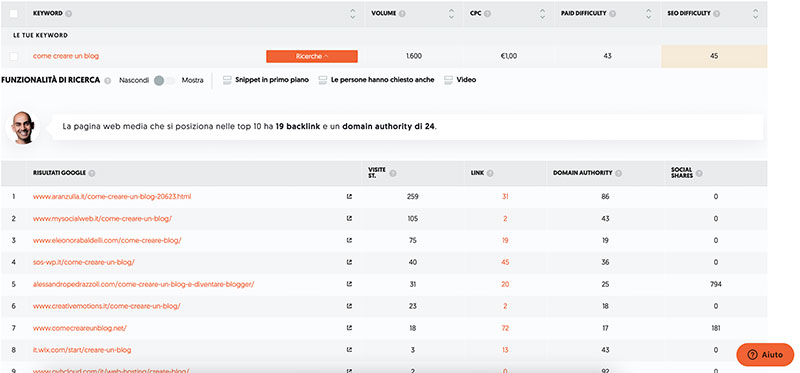
RENOR & Partners è una società di consulenza d'impresa con alti standard qualitativi e con i prezzi più bassi del mercato.
RENOR & Partners S.r.l.
Via Cicerone, 15 - Ariccia (RM)
info@renor.it
How to Write a Blog Article – The Truth
How to Write a Blog Article – The Truth

This post is also available in:
Italiano (Italian)
This is going to be a presumably long article, because in order to give you the pointers, albeit in a stringent manner, on how to write an effective blog article especially with regard to search engine rankings, it will also be necessary to introduce some topics related to how the engines analyze and rank pages, articles and websites, giving them in their very long Search Engine Results Page (SERP) list the correct ranking.
Let’s start with SEO basics
A search engine gives different scores that will be used to rank and categorize the results. Right now you are reading this article but it is very likely that typing the keyword “How to Write a Blog Article” will bring up lots of other results.

Google search
If we want to be precise with this keyword about 22,600,000 (read twenty-two million six hundred thousand) results come out.
You will immediately understand that it is unthinkable to publish an article and have it ranked first on Google, unless of course you invest a certain amount of money to sponsor it on Google Ads. But let’s not lose heart, this is only one of the keywords within the article, and Google extracts so many of them. Once again, however, in all likelihood, none of these keywords will make your site rank first.
How a search engine works
The answer is: no one knows exactly! It is said that even Google’s basic algorithm is known only to the two founding fathers of the American giant (these are just rumors). In any case, despite the fact that the algorithms have not been made public, for obvious reasons, most of them have been empirically analyzed over time and we know some basic rules to follow to make sure that our blog sooner or later also shows results on the first page.
Search engines have over the past 25 years, like technology, had a frightening engineering growth, moving from Algorithms for “syntactic” analysis, i.e., which dwelt solely on checking compliance with certain rules in a mechanical way, to Algorithms for “semantic” analysis, where such algorithms even go as far as understanding the meaning of the text within an article. It follows that in the same way that a professor would give a grade to an essay that derived from the care of the spelling, the absence of spelling errors, the content, and the literary value of the essay; in the same way today, search engines take into consideration a number of variables ranging from the “correctness” of code writing… ” Are semantic tags used? Is the web page written following W3C standards? Are the loading times fast?” all the way to the quality of meaning of the content and even“Sentiment Analysys,” or the ability to understand the mood of the person who is writing. If you think about it, this is crazy!
Out of this kind of analysis comes a list of keywords that the search engine has identified, which it places at the base of a histogram. Each keyword will be given a grade that provides a “weight” of importance that is useful for ranking purposes.
Put like that, it all sounds easy because it would be enough to write a meticulously detailed, stylistically flawless article to make it appear first on Google for at least one keyword… Here’s the bad news: it doesn’t work that way.
The ultimate ranking comes from a number of other factors that do not affect the article itself but the website as a whole: the “Domain Authority.”
What contributes to increasing the authority of a website… So many parameters, some of which directly depend on the work done on the site itself, many others that do not depend on the developers, bloggers, or site administrator.
Among what falls under the “powers” of the site creators are, as we have already mentioned: the loading speed and compliance with W3C rules for writing code, the use of semantic tags and all those technical attentions that instruct the search engine on the various sections of the site. Certainly another important parameter is the number of pages and/or articles the site counts within it. A site that has 100,000 articles is definitely a more authoritative site than one that has a dozen.
What really increases a website’s authority, however, is the number of Backlinks. In fact, the search engine does not calculate a website’s authority score based solely on the website itself but also based on the number of Backlinks (i.e., links that come from other sites and point to ours), and hear me out, from the authority of those sites.
If you think about it, the motivation is simple. If to get up Domain Authority it is enough to link articles from another site, then I might think about making an investment, buy 100 domains and start linking all my articles on those 100 sites and that’s it. Obviously with the system implemented by Google this practice becomes totally useless at the act when those newly created sites will have an authority of 0, so the backlink brought from these sites will have a weight of 0.
However, it is not enough that other authoritative sites link to our article, we must also technically see the nature of the link.
There are two types of links: “dofollow” links and“nofollow” links are two types of link attributes. In the first case no special instructions are inserted, in the second case the rel=“nofollow” attribute or even noreferrer or noopener is added.
Example of dofollow links
<br /><br /> &lt;a href=“https://nome-dominio.com/nome-articolo/” target=“_blank”&gt;Link&lt;/a&gt;<br /><br />
Example of nofollow link
<br /><br /> &lt;a href=“https://nome-dominio.com/nome-articolo/” target=“_blank” rel=“nofollow”&gt;Link&lt;/a&gt;<br /><br />
Follow links inform the search engine to follow that link because it carries information deemed important for reading comprehension or for further study.
Nofollow links, on the other hand, simply link to an external page without informing the search engine to follow that link. This type of link in fact matters little or nothing for SEO purposes.
Article-level SEO
Now that we have a smattering of how search engines behave with our site, let’s go over what tricks to consider when we need to write an article.
Since, as we have seen, search engines perform semantic analysis of content, they expect the article to be written in language that is understandable and clear with sentences that are not excessively long: short, concise periods that areeasy to understand. That the text is structured in such a way that one can easily find what one is looking for, for example, through fast scrolling headlines. This is why a search engine expects to find a main title identified by the tag <h1>, 2 to 5 subtitles <h2> and wanting other sections identified by tags <h3>. Dividing the text into paragraphs is necessary to improve the reading experience and not fatigue the reader.
If you insert multimedia content (images and videos) these must contain the attribute regarding information for the blind, a title and a long description, in which you can write the content of the image and why this image was inserted, for example, to clarify a concept.
Another caution is related to avoiding passive forms as much as possible. For example, an engine appreciates it more to write, “A friend greets Joan” rather than “Joan is greeted by a friend.”
This, too, is an expedient that improves reading by making it less burdensome.
How to write the article
It doesn’t start with article writing…. Yikes! You will say… Still can’t write it?
No!
Writing an article without doing appropriate analysis is useless. You will definitely make a hole in the water.
The most important thing to do when writing a blog article is to plan the article. Basically some research should be done, and only then can we figure out if our ideas are correct or if we should fall back on some other keyword that is easier to rank for.
When it comes to keywords, it’s not what it used to be! That is, the more times I write it in the article, the more I will be promoted on search engines. No, on the contrary, if you try to implement such a strategy you will be penalized by the engine. The only thing you will have to do is to keep the keyword in mind and write the article without paying too much attention to how many times you will mention it in the text. Google does the interest of users, it is because of them that it has become big and multi-billion dollar. You must always write for the users, not for Google. So learn all these rules by heart and forget about them at the time you are writing the article. Adjust your pitch once the article is written, perhaps structuring it with paragraphs and headings. Reread it several times and try to express a concept that may seem a bit cumbersome to you with simpler words and shorter periods; but do the first writing in your own fist! Always keeping the key word in mind.
I wanted to write this article using the keyword “How to Create a Blog,” these were my analyses…

SEO keyword analysis “How to create a Blog”
When you get an SEO Difficulty of 45 with the first result of Salvatore Aranzulla having a Domain Authority of 86 and 31 Backlinks you immediately understand that it is not the case to move with that keyword. I tried other keywords, doing the appropriate analysis and came to the conclusion that “How to Write a Blog Article” was a keyword that could have simplified the chances of ranking me at a good level. Of course (at present), definitely not on the first page.
But I remind you that there is Domain Authority…. If we continue to publish articles at this rate, sharing them on social, increasing the fan base on social there will be more and more visits to the site and more and more articles, more and more Backlinks, therefore the Domain Authority of our site as time goes by will increase more and more compared to the sites that have been standing still or have a stationary Domain Authority anyway. In the end it is a silent war where those who work the hardest and put in the most work by investing their time on the site will get recognition on the search engines.
Ours is a consulting company but beyond the pleasure of sharing information with our readers and clients, we also do these articles to increase the Domain Authority of our site. Increasing connections to the site means increasing brand awareness and increasing brand cognition means having more organic customers, i.e., not coming from Paid Marketing campaigns: this means less spending on marketing to acquire new customers. At the end of the day this is what you work for.
If you need IT or Marketing advice, you can go to our contact section; in the meantime, we hope we have given you some guidelines for starting your own successful Blog!

